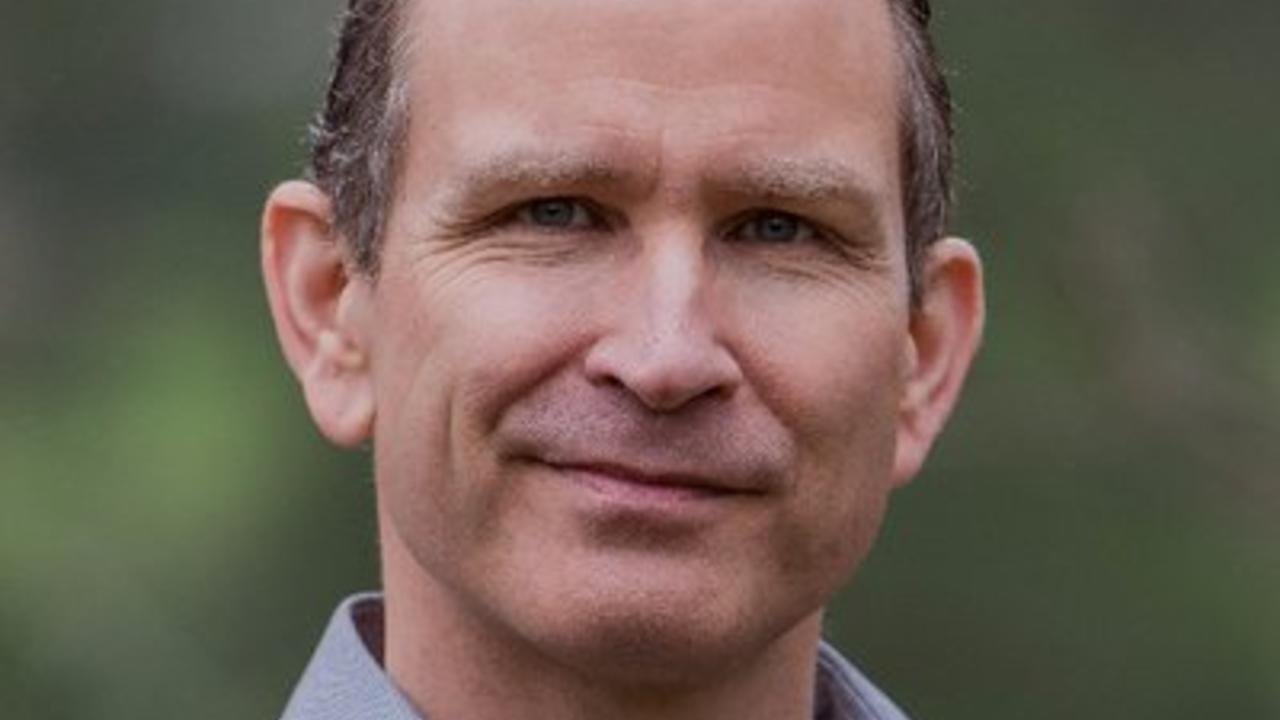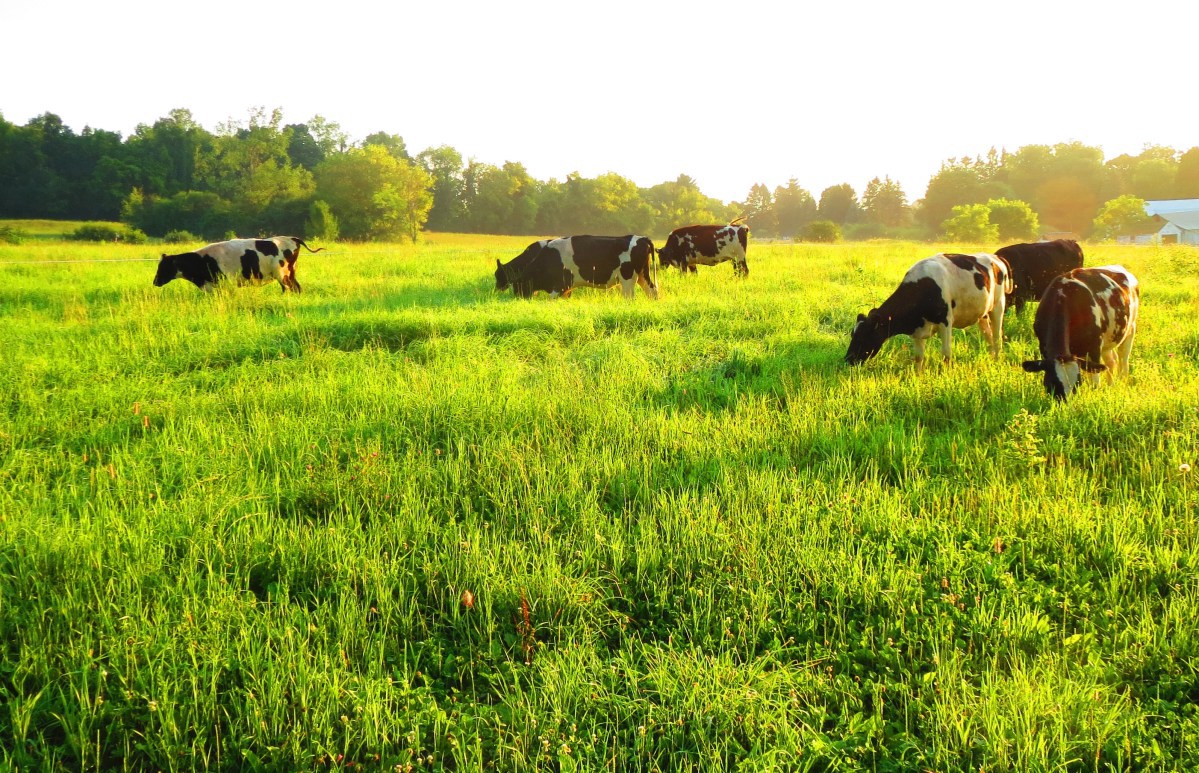Interview: Bruce Friedrich, CEO of Good Food Institute

Bruce Friedrich is the CEO and co-founder of the Good Food Institute, a non-profit that promotes the growth and rise of plant-based meat alternatives as well as cellular agriculture. Friedrich has done several TedTalks regarding the future of food and the importance of finding a sustainable source of proteins and animal products. He has also written the book Clean Protein with Kathy Freston. He is an advisor to New Crop Capital, a venture capital firm that invests in innovative companies in the alternative protein space.
We are very excited that Bruce agreed to do an interview with us about the Good Food Institute and himself!
Ahmed Khan: How did you first get passionate about the sustainable protein space and what motivated you to co-found the Good Food Institute (GFI)?
Bruce Friedrich: After I started college in Iowa back in 1987, I joined a group called Poverty Action Now. We organized fast days to raise money for Oxfam International and volunteered our weekends at a Christian homeless shelter in Des Moines. The main organizer gave me the book Diet for a Small Planet. That book clocks in at almost 500 pages, but here’s the Cliff Notes version: Farm animals are extremely inefficient at converting the plants that we feed them into meat.
This idea is simple: I weigh about 180 pounds. I need to eat about 2,400 calories a day simply to stay alive and maintain that weight. The same basic relationship is true for farm animals: the vast majority of whatever is fed to them – the soy, wheat, oats – simply goes to staying alive.
In addition to the wastefulness of feeding crops to animals, I was appalled by the environmental degradation and the ways animals are treated on factory farms. All this led me to change my diet and my career. For decades, I tried to convince other people to change their diets as well. This year, though, per-capita meat consumption will be at an all-time high in the United States. And as the developing world gets richer, people are eating more and more meat there as well.
This prompted several of us to stop focusing on the demand side. If you can’t beat ‘em, join ‘em. Since people are going to eat meat, let’s give them meat that doesn’t exacerbate world hunger, or create so much climate change, or cause land, air, and water pollution, or require factory farms and industrial slaughterhouses.
In short, let’s change the supply. We started talking about this in 2015, and The Good Food Institute was officially launched on February 1, 2016.
"Our ultimate goal is to put ourselves out of business"
Ahmed: How would you define plant-based proteins and cellular agriculture, and how are these different from conventional animal protein products?
Bruce: Plant-based and clean meat, eggs, and dairy differ from conventional products because they don’t require live animals. There is no need to grow extra crops to feed an animal as they grow brain, bones and blood. This makes plant-based and clean meat inherently more efficient. Furthermore, there are no feces, no antibiotics or other drugs, no factory farming, and no slaughter.
There is no clear distinction between plant-based and cellular agriculture. There is tofu on one end and pure clean meat on the other. But in between, you have the mostly plant-based Impossible Burger with heme that comes from cellular agriculture. Further along the spectrum you have milk that is the combination of cow’s milk proteins produced with cellular agriculture mixed in with other ingredients derived from plants.

The Impossible Burger
Ahmed: What does GFI do to help promote plant-based proteins as well as cellular agriculture products?
Bruce: GFI acts as a think tank, incubator, and accelerator. We map out the “white spaces” in both the plant-based and clean meat spaces, noting where there are openings for companies to step in and fill an important role. We have also open-sourced the current cutting edge of both plant-based and clean meat. This provides everyone a solid starting point for their efforts without having to reinvent the wheel!
GFI’s Innovation team seeks out the top minds in colleges and universities across the country, in fields ranging from MBA and marketing to molecular biology and systems engineering. We let them know about the ongoing transformation of the trillion-dollar meat industry and the incredible opportunities they could have in this field.
For people who are interested, we provide the expertise and resources needed to start a company. These resources include everything from branding to connections with venture capital.
As companies get started, we provide them with technical connections and regulatory expertise. This allows new companies to focus on building the science and engineering portions of their business.
GFI’s Corporate Engagement team is working to build and expand the markets for plant-based meat (and eventually clean meat). We have built collaborative relationships with some of the largest food companies and chain restaurants to maximize the availability, quality, quantity, and promotion of plant-based alternatives.
In addition, GFI engages with foundations, corporations, investors, and governments to explain the value of research and development (and mergers and acquisitions) in the plant-based and clean meat fields. These efforts seek to divert tens of millions of dollars in government and foundation grant money toward plant-based and clean alternatives to meat, eggs, and dairy.
Finally, GFI’s International team is replicating the policy and science work of the rest of our team in Brazil, India, Israel, and a growing number of other countries.
Ahmed: What are your and GFI’s goals and aspirations for 2018? What would you like to see happen by the end of the year?
Bruce: Here is our strategic plan. We’re executing as quickly as we can.
We are driven by metrics that derive from our strategic plan and our theory of change. We have six programmatic departments and three support departments, and all nine GFI directors and their teams have detailed quarterly and annual goals that serve our strategic plan.
Our ultimate goal is to put ourselves out of business – to have helped transform the conventional meat industry entirely to plant-based and clean meat by 2050.

"A well-marketed, cost-competitive plant-based chicken nugget could have a huge impact"
Ahmed: 2018 has been off to a great start for cellular agriculture with all of the new investments in the field... What are some of the main obstacles that you see ahead before cellular agriculture (and some plant-based proteins) enter the market?
Bruce: The best plant-based proteins currently on the market are very satisfying for most people. The limiting factors in many cases are cost and production. In other cases, many people just don’t know about these options, and better marketing and availability will help solve that.
For clean meat to get to market, the main obstacle is the cost of the growth media and the cost of building out the production infrastructure. We know what the media have to contain – there is no mystery. However, most of these media were developed for growing human tissue for medical applications, where there is no price pressure. To be price competitive with conventional meat, we need to mass produce a medium that is much less expensive, and we need to design and build the giant cultivation tanks that will produce these products.
Ahmed: Recently there has been a lot written about the emergence of plant-based protein alternatives and cellular agriculture (such as clean meat) in the media. Do you see more growth opportunities in cellular agriculture or plant-based protein alternatives?
Bruce: There are definitely significant opportunities in both fields. This became clear to us when we developed our white papers about both plant-based meat and clean meat. Clean meat and other products of cellular agriculture attract more attention, because they seem more cutting edge. However, a well-marketed, cost-competitive plant-based chicken nugget could have a huge impact.
Ahmed: What do you see happening to conventional livestock animal agriculture? Do you believe that we will get to the point where we no longer need to raise animals, or that livestock agriculture will become a much smaller industry?
Bruce: Plant-based and clean meat will eventually replace conventional livestock just as surely as cars replaced horses and buggies. Horses didn’t go extinct, of course, but basically no one looks at horses now and thinks, “Yeah, that’s how I’m going to get to work.” Similarly, we will get to a point where almost no one will look at a cow or a bird and think, “Yeah, that’s my dinner.”

"We will get to a point where almost no one will look at a cow or a bird and think, “Yeah, that’s my dinner.”"
Ahmed: How can people who are just learning about cellular agriculture and/or plant-based meat/protein alternatives get involved? What would you recommend they do?
Bruce: The first thing they should do it sign up for the GFI email list (at the bottom of our homepage)! The second is to review our list of resources. Once you have a better idea of your interests and how you would like to get involved, please contact us and we’ll connect you to the appropriate department for more information.
Stay connected with CellAgri
Join our mailing list to receive the latest news and updates weekly from the cellular agriculture industry. Your information will not be shared.





